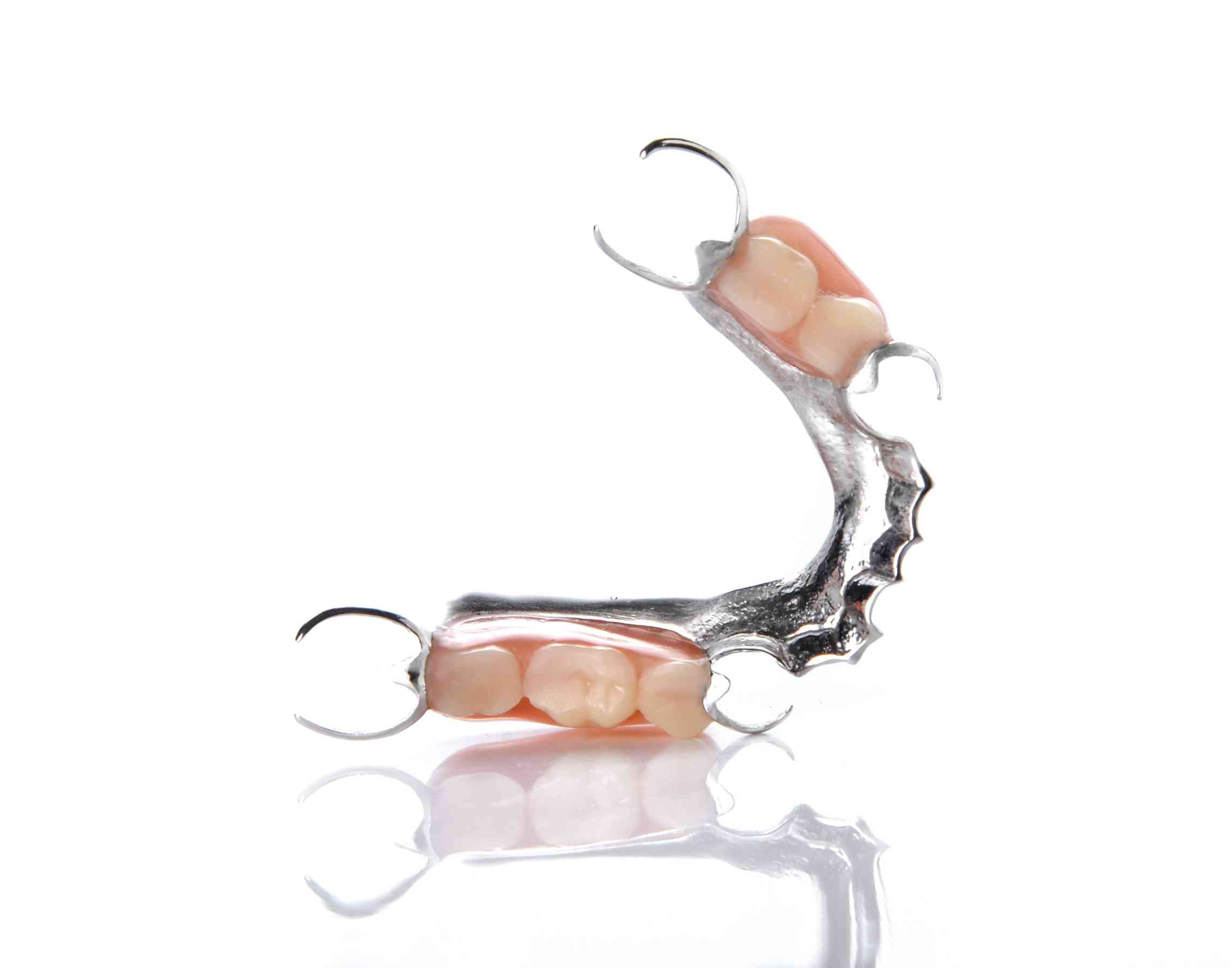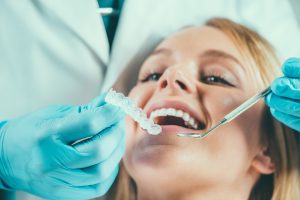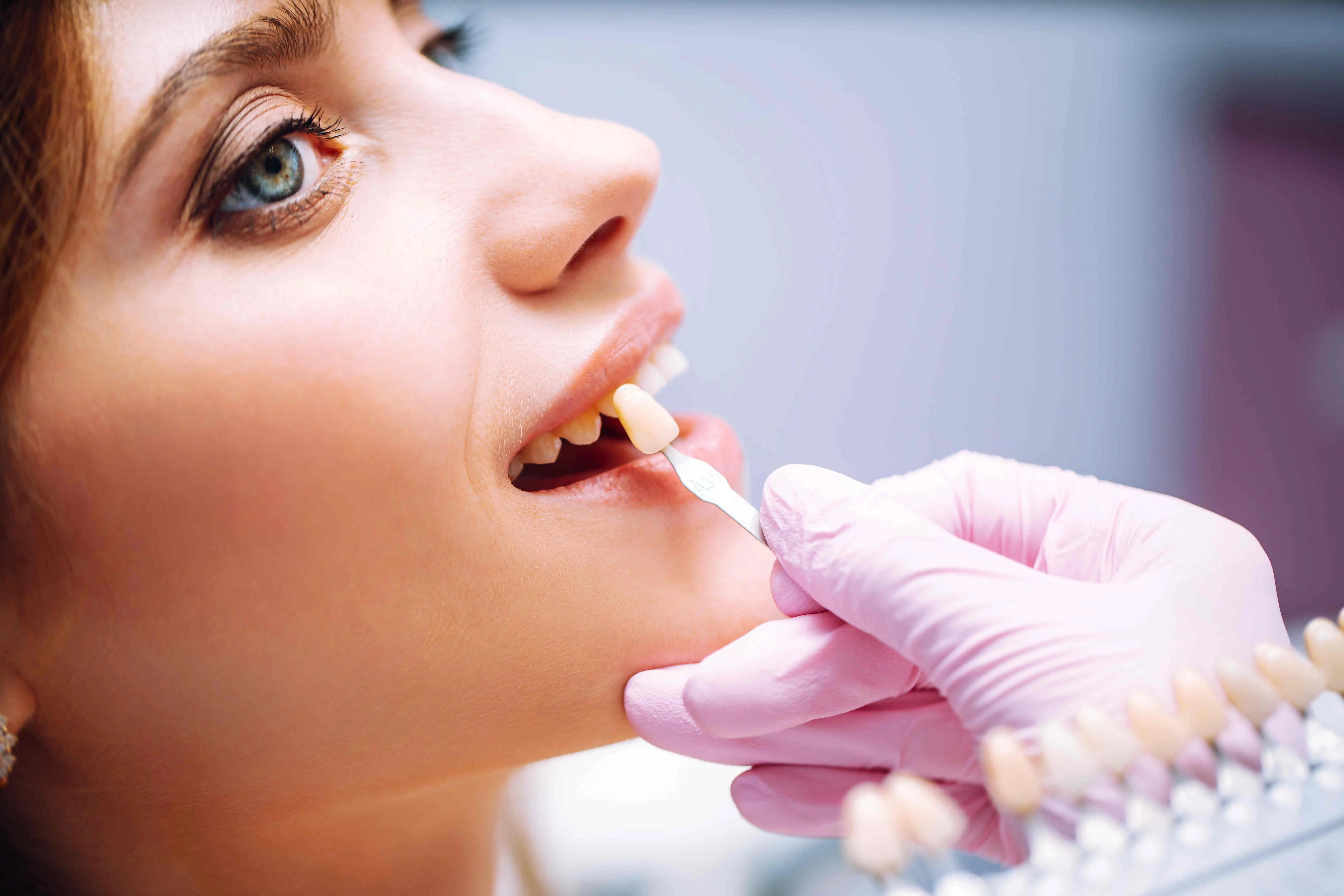Dentures And The Basics
Dentures are pretty popular among Americans as a replacement for missing teeth. They also support surrounding tissues, restoring the teeth’ structure and function.
Dentures – The Types
They are mainly of two types –
- Partial
- Complete
Partial Dentures
Partial dentures are recommended to patients who have some natural teeth present in their oral cavity. The artificial teeth are attached to a gum-colored or pink plastic base. Metal or flexible pink plastic clasps help hold it in its position.
They fill in the spaces present in the mouth and also prevent the opposing or adjacent teeth from misalignment. These are commonly removable, making it easier for the patient to maneuver.
Complete Dentures
Differing from their counterpart, complete dentures are advised in edentulous patients – i.e. have all their teeth missing. They are of two kinds – conventional and immediate.
Conventional dentures are delivered once the patient has recovered from teeth removal. The time frame is usually around 8-12 weeks. During this time, the gum tissues heal and it is manufactured.
Alternatively, immediate dentures are delivered to the patient immediately after teeth removal. They are manufactured well in advance. Because they are delivered right after tooth extraction, the patient doesn’t experience being “toothless” while they heal. Be that as it may, they have to be constantly readjusted owing to gums and bones shrinking over time. Owing to this, they are considered a temporary solution until a conventional one has been made.
Top Tips On How To Clean Dentures
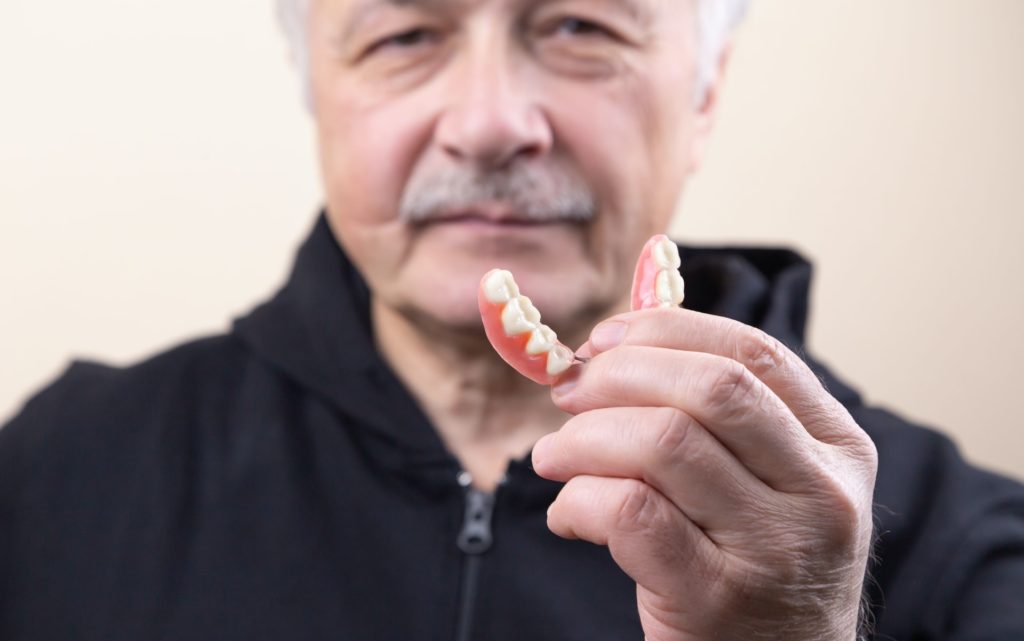
Removable dentures – whether partial or complete – need proper care and maintenance. They have to be kept clean, stain-free and looking in tip-top shape. Listed below are top tips on how to clean and keep them free from issues.
After eating, remove and rinse your denture
Running water over dentures removes any food debris or loose particles that might be stuck on them. Remember to place a towel or fill some water in the sink to prevent the dentures from breaking should they fall.
Handle them carefully
Ensure that you’re not damaging the plastic or clasps when cleaning the dentures. Additionally, don’t try to bend them either.
After removing your dentures, clean your mouth
With the help of a soft-bristled toothbrush on any natural teeth present. You can also use a soft toothbrush or a clean gauze to clean your cheeks, tongue, and palate (roof of your mouth). If you notice the presence of any denture adhesive residue, make sure to clean them as well.
Brush your dentures twice every day
Similar to your natural teeth, your dentures need to be cleaned twice daily. Soak them and brush them using a toothbrush with soft bristles along with a nonabrasive cleanser. The combination of this two help removes plaque, food, or any other deposits.
Additionally, pay attention to the grooves that align against your gums to remove any adhesive residue. Don’t use the denture cleanser in your mouth!
Soak your dentures overnight
Most dentures have to be kept moist to protect their shape and prevent warping. Placing them in water or a denture-soaking solution overnight is important. Ask your dentist at Rivers Bend how to properly clean, soak, and store your dentures overnight.
If you use a denture-soaking solution, remember to rinse them thoroughly before you reapply them. Since these solutions consist of harmful chemicals, they can induce vomiting, pain, and burns if accidentally swallowed.
Be regular with your dental checkups
Your dentist at Rivers Bend will advise you on how often you should be visiting them. This is important for examination and professional cleaning of the dentures. Should you experience any loosening, slippage, or discomfort, your dentist can fix them to ensure proper fit. Additionally, they will also inspect your oral cavity to make sure everything is healthy.
Things To Avoid With Denture
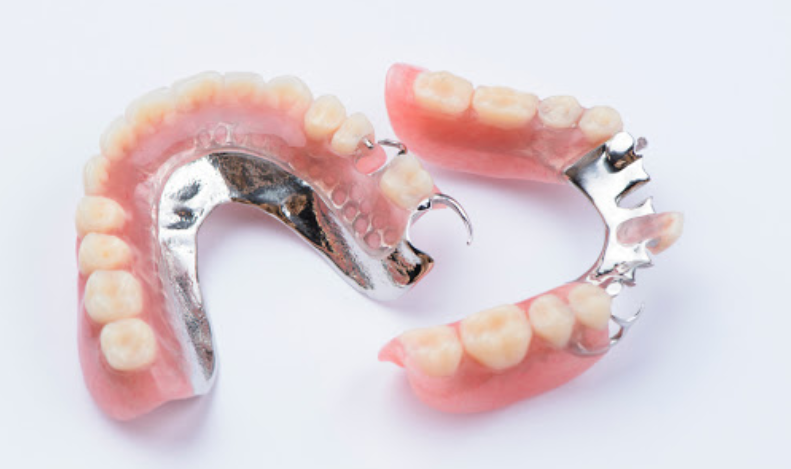
There are certain things you need to avoid with dentures. Find them listed as follows –
Cleaning solutions or materials that are abrasive
Forego toothbrushes with stiff bristles, harsh toothpaste, and strong cleansers since they can be too abrasive and hence, damaging to the dentures.
Whitening toothpaste or products containing bleach
The presence of peroxide in whitening toothpaste does little to change the color of the artificial denture teeth. They can also damage the denture itself.
Similarly, bleaching products can weaken the denture material and also change its color. Furthermore, if your denture has metal attachments, don’t soak them in solutions containing chlorine. These can corrode and tarnish the metal.
Hot water
Boiling or hot water can warp your dentures. It’s best to avoid them.
How Do You Get Plaque Off Dentures?
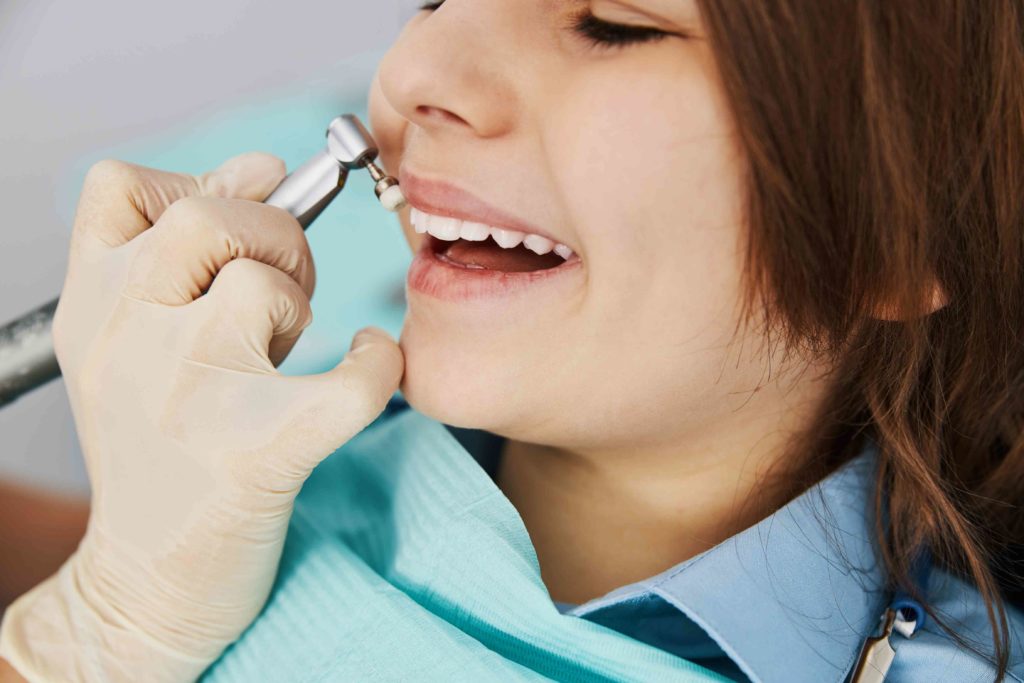
Dental plaque, is a sticky film that contains bacteria and covers teeth. Similar to your natural teeth, plaque and food deposits stick to your dentures.
If you fail to clean them, it can lead to a buildup of plaque, increasing the risk of gum disease and halitosis (bad breath).
Using a soft-bristled toothbrush, clean your dentures twice every morning and evening. Avoid harsh toothbrushes and toothpaste since these can leave scratches and cracks on the surface, damaging them.
Don’t forget to rinse them after every meal to prevent food from lodging in the crevices. Additionally, remember to clean your natural teeth (if any) and gums.
What Should I Soak My Dentures In At Night?
As mentioned earlier, they need to be kept moist to prevent them from warping. This means that you should be soaking them overnight once you remove them before bed.
But what kind of liquid should you be using to soak them in? Most people use distilled water or plain tap water. You can also use a denture-soaking solution. Ask your dentist for a recommendation.
If you’re a denture wearer or are looking to replace your missing teeth, schedule an appointment with River’s Bend Family Dental today. Call us at (763) 576-1855. Allow us to rehabilitate not only your oral cavity and smile but also your life.

